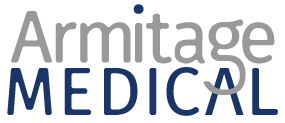Over the years, I’ve consulted with several clinicians who want help getting started in medical writing. Some are interested in a side gig, while others are interested in a complete transition out of clinical work. Some are interested in full-time, employed positions, and some would like to start a freelance business. There are lots of opportunities in medical writing, so all of these are possible for clinicians. But how you get started is important.
I want to encourage you to engage in a little prep work before you dive in. Getting into medical writing can be frustrating because there is no easily accessible, comprehensive source for all of the information you may want or need (yet). But taking time for some self-reflection can help facilitate your entry into the field.
There are a few questions to ask yourself – and answer – before you get started. In my opinion, this little exercise will help prevent you from spinning your wheels unnecessarily. If you can think through these topics before jumping into action, you’ll find yourself on a much more efficient path to medical writing.
As you work through these topics, remember that there is no right answer for anyone, nor is it reasonable to think your answers won’t ever change. I simply encourage you to be thoughtful about these things as you plan your transition or side gig.
-
What kind(s) of medical writing am I interested in? In other words, what exactly do I want to do?
Do you want to use your skills and expertise to answer the public’s burning questions on a particular health topic? Do you have publications experience and want to write manuscripts for other researchers? Or do you want to parlay your clinical trial experience into the regulatory world? These are just a few examples, but know that a plethora of options in medical writing exist. Many people, clinicians included, are usually surprised to find out that the field of medical writing is actually quite broad and diverse. It helps to have a basic understanding of the landscape before choosing a path.
-
Are my writing skills up to par?
Consider your writing experience, if you have any. Does your experience include peer-reviewed journal articles, in which case your written content was subject to multiple rounds of proofreading and editing? Is your writing experience limited to projects from residency or even undergrad, in which case you might be a little rusty? In any case, the overwhelming majority of folks who have been in clinical practice for a while could benefit from a writing course to improve their skills. Attention to detail is a critical skill for medical writers, and potential clients will quickly notice if your skills are lacking.
-
How much time do I have to devote to this?
Again, there is no right answer to this. There is no magic threshold for number of hours per week I recommend to set aside. But while you’re probably thinking you have a few hours here and there to write, you may not have considered all of the ancillary activities that will consume your free time as you transition or prepare to start freelancing. To start, these include:
- preparing your LinkedIn profile
- converting your CV to resume format
- looking for work online
- networking
- email correspondence
- creating a website (optional)
There are others, but hopefully I’ve made my point. Don’t underestimate the “extras” that are necessary to building a successful freelance writing business or seeking employed positions.
-
Can I accept not having the final word on my projects?
This is a big shift in mindset for many clinicians. It’s important because as a medical writer, you’ll be working for clients, many of whom do not have a clinical (or sometimes even scientific) background. You obviously have the autonomy to choose with whom you’ll be working and what kind of content you’ll be creating if you are freelancing (not so much if you’re employed). But at the end of the day, it’s someone else’s website or educational program or regulatory document. You may not get the final word or even stamp of approval. If you’re accustomed to calling the shots all day long in your practice, will be an adjustment. Obviously the stakes are not as high, but it’s still something to consider.
-
Why am I interested in medical writing?
Last, but certainly not least, why are you looking into medical writing? Are you researching options to make a little money on the side? Or are you looking for anything that will quickly (like, now) get you out of a nightmarish clinical practice? Do you just need a little more flexibility and less liability? Again, there is no right answer here, and it may be some combination of all of it. I respect that. But it’s so important to fully grasp where you are in your career and where you want to be. That might sound a little too fluffy or abstract for a science mind, but please don’t dismiss it. I recently wrote about this in my blog post on advice for people planning to attend nonclinical career events, as I have increasingly noticed a slight tinge of desperation from clinicians looking for nonclinical options. I get it. I’m not judging. I simply want to encourage you to make thoughtful decisions about your next steps.
